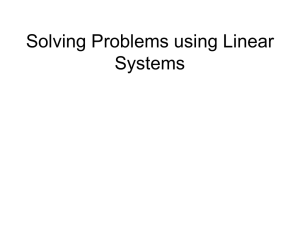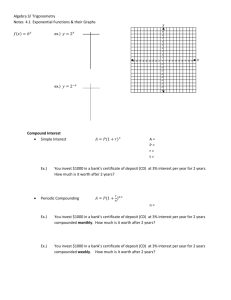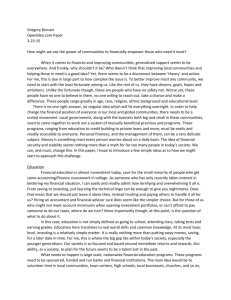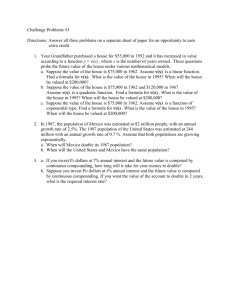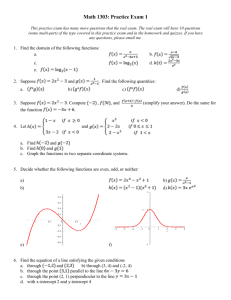Why Do You Need To Invest
advertisement
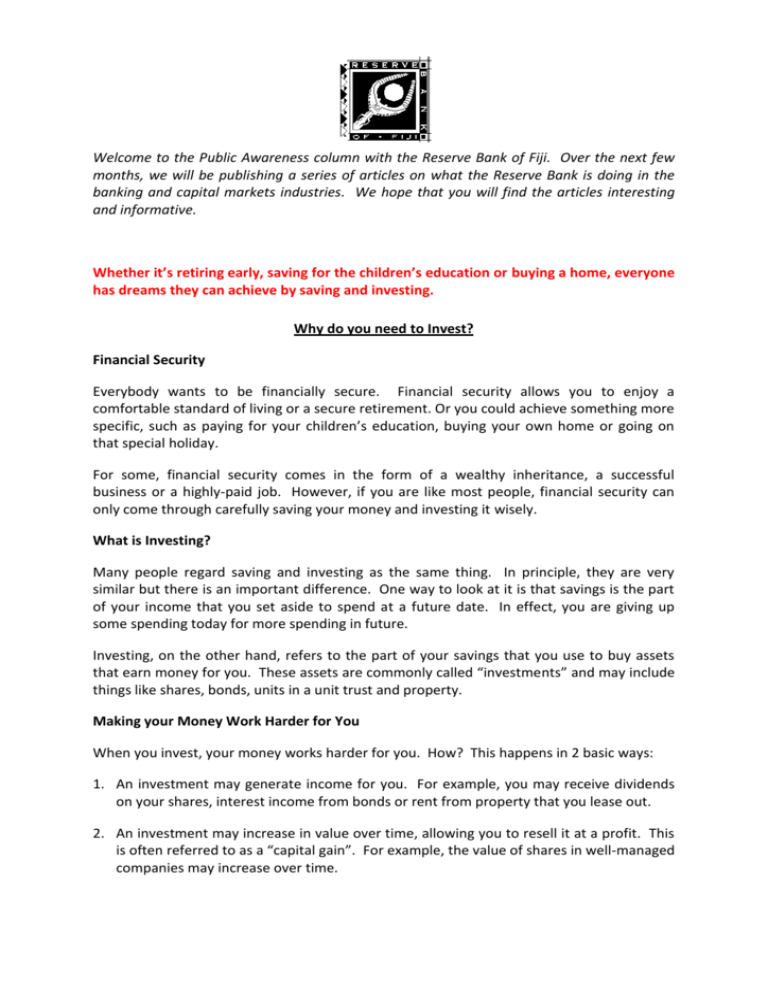
Welcome to the Public Awareness column with the Reserve Bank of Fiji. Over the next few months, we will be publishing a series of articles on what the Reserve Bank is doing in the banking and capital markets industries. We hope that you will find the articles interesting and informative. Whether it’s retiring early, saving for the children’s education or buying a home, everyone has dreams they can achieve by saving and investing. Why do you need to Invest? Financial Security Everybody wants to be financially secure. Financial security allows you to enjoy a comfortable standard of living or a secure retirement. Or you could achieve something more specific, such as paying for your children’s education, buying your own home or going on that special holiday. For some, financial security comes in the form of a wealthy inheritance, a successful business or a highly-paid job. However, if you are like most people, financial security can only come through carefully saving your money and investing it wisely. What is Investing? Many people regard saving and investing as the same thing. In principle, they are very similar but there is an important difference. One way to look at it is that savings is the part of your income that you set aside to spend at a future date. In effect, you are giving up some spending today for more spending in future. Investing, on the other hand, refers to the part of your savings that you use to buy assets that earn money for you. These assets are commonly called “investments” and may include things like shares, bonds, units in a unit trust and property. Making your Money Work Harder for You When you invest, your money works harder for you. How? This happens in 2 basic ways: 1. An investment may generate income for you. For example, you may receive dividends on your shares, interest income from bonds or rent from property that you lease out. 2. An investment may increase in value over time, allowing you to resell it at a profit. This is often referred to as a “capital gain”. For example, the value of shares in well-managed companies may increase over time. Overall, the income and capital gains you receive from your investments can be much higher than interest from bank deposits, which means you accumulate wealth faster. Of course, the faster you accumulate wealth, the sooner you get to achieve your financial goals. The Amazing Power of Compounding The key to accumulating wealth lies in the concept of “compounding”. Compounding refers to how your money can grow faster over time. This happens when you reinvest income earned from your initial investment rather than spending it. This reinvested income will earn additional income which you reinvest as well. If this cycle is allowed to continue, it eventually has a “snowball” effect. This is because with each cycle, your total investment grows larger and therefore earns even more income in the next cycle. To illustrate this wonderful concept, let's use an example: Say you have $2,000 available, which you invest immediately. Thereafter, you invest an additional $100 every fortnight. Any interest income you receive is also invested. Now assume that you are able to get 8% interest on your investments per year. How fast does your money grow? 1. After 5 years, you would have accumulated $18,936. You would have $44,187 after 10 years and $137,960 after 20 years. If you waited patiently for another 10 years, you would have accumulated $346,401! 2. What’s more, if you invested $200 each fortnight instead of $100, you would accumulate a massive $670,836 after 30 years! The accompanying graph illustrates these figures and clearly shows the acceleration in growth. It's no wonder that Albert Einstein once referred to compounding as the most powerful principle he had ever witnessed! Note that in addition to the effects of compounding, you may also benefit from capital gains on your investment. Harnessing the Power of Compounding As the example suggests, the secret to harnessing the power of compounding can be summarised as follows: 1. Invest early - With each day you wait and do nothing, you lose the opportunity to compound your wealth. Importantly, the lost opportunity accelerates rate over time. 2. Invest a reasonable amount - As the example showed, increasing the amounts that you invest can make a very large difference over a long period of time. 3. Reinvest income - Each time you reinvest income earned from your investments, you increase your total investment which, at a given interest rate, earns even more income the next time around. 4. Invest for a long period of time - Remember that the effect of compounding speeds up over time, so be patient. 5. Invest at a good interest rate - The higher the interest rate (also referred to as "rate of return") the more income you make, which can also be invested. However, bear in mind that, as a general rule, investments with high returns tend to be more risky. Therefore, the appropriate return for you will also depend on how much risk you are prepared to take. Be Aware of the Risks Bear in mind that different investments have different risks. Be sure to understand the risks of the investments that you buy and seek advice from a licensed investment adviser if you are unsure about your investment options. *************************************** This article is provided by Financial Systems Development & Compliance Group (FSDC) Reserve Bank of Fiji Level 6 Reserve Bank Bldg Suva. Tel. 3313 611/Fax. 3301 688 Email. info@rbf.gov.fj Disclaimer This article is by no means a conclusive document. The Reserve Bank of Fiji takes no responsibility for any consequences arising from decisions taken on the basis of the contents of this article.
